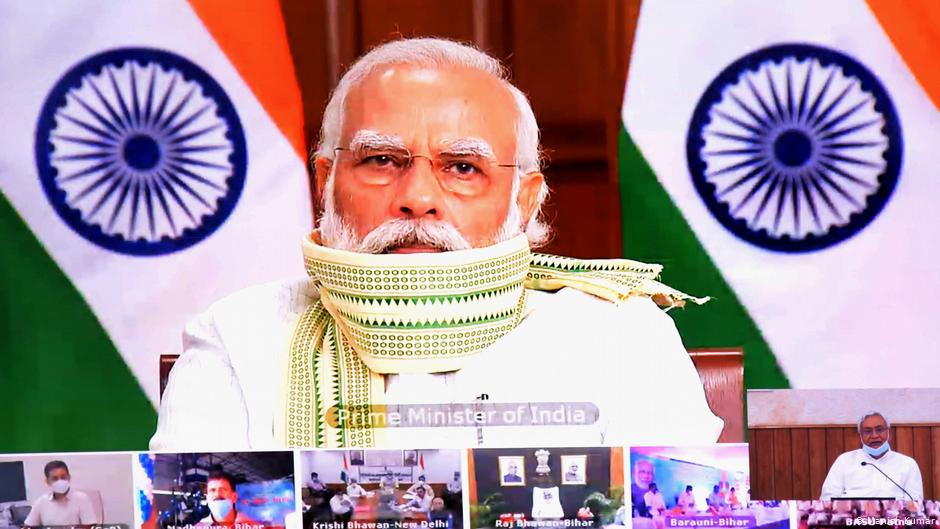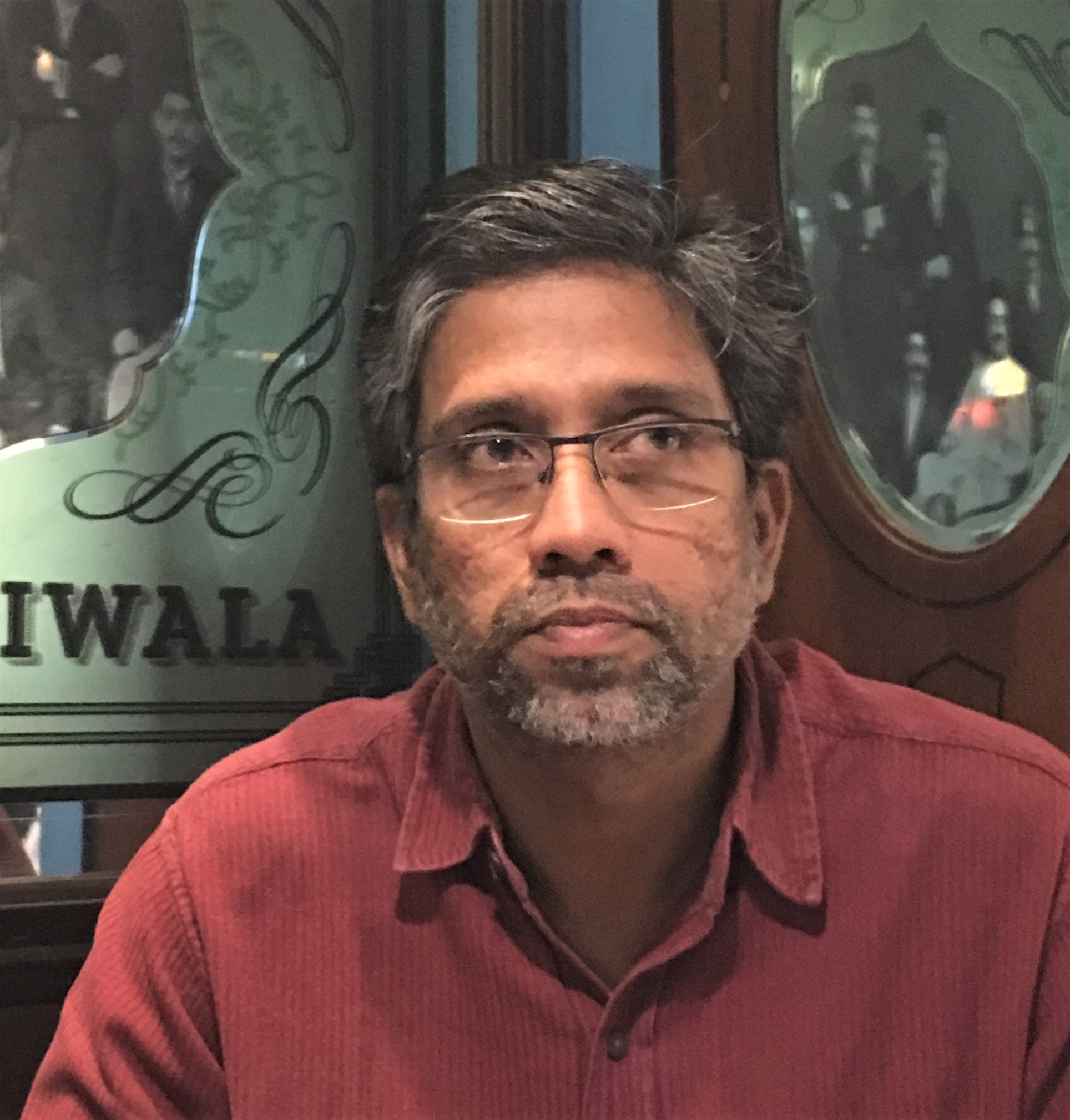Narendra Modi's vendetta against free-thinking academics

"Suspicious literature" is how India's National Investigation Agency described publications owned by Dr Hany Babu. These supposedly dangerous publications included academic texts such as a historical study of caste and a sociological study of rural uprisings against land alienation and developmental projects in India. The 54-year-old, who is associate professor of English at Delhi University, was arrested in July 2020 on suspicion of "propagating Naxal activities and Maoist ideology".
In current Indian government parlance, the term "Naxal" and its variant "Urban Naxal" implies membership of a banned communist party, but is broadly used to brand anyone who dares to question the state as internal enemies, justifying their incarceration and thereby fostering a general environment of fear.
The counter-terrorist National Investigation Agency, founded in 2009, carried out the raid on Babu’s apartment without a search warrant, confiscated his laptop, hard-drives, mobile phone and the above-mentioned "suspicious" publications. His wife and daughter were initially also detained in the house during the raid without access to a lawyer.
Babu was charged with, among other things, his involvement in a campaign for the release of G.N. Saibaba, an academic with severe physical disabilities who has been in prison since 2014. Pointing out the numerous inconsistencies, errors and outright lies in the charges has not so far led to any legal reprieve.

Imprisonment in times of pandemic
Hany Babu is just one of dozens of Indian academics, public intellectuals, writers, journalists, lawyers and community leaders who have been arrested in India in recent times, on nebulous accusations such as incitement to mob violence, terrorism, sedition, Maoism and involvement in conspiracies to assassinate the prime minister, Narendra Modi. Many of those arrested face allegations in connection with an episode of caste-based violence that took place in 2018, in the western state of Maharashtra.
The arrests have increased despite the rapid spread of the coronavirus pandemic in India, where more than 40,000 new infections have been reported daily for weeks. Attempts to secure releases on humanitarian or health grounds have so far been rejected by the courts.
Some academics and journalists have now spent more than two years behind bars without a hearing. They include scholars who have written on topics such as caste-based discrimination, land rights, human rights violations in Kashmir and the north-east of India, and violence against women.
Some, like Anand Teltumbde, Sudha Bharadwaj and Shoma Sen, are tenured professors at respected academic institutions. In the past, young academics such as Mahesh Raut received substantial national grants for fieldwork in the area of rural development.
One of the men recently arrested and accused of terrorism, on 8 October 2020, was 83-year-old Jesuit priest Stan Swamy, a community leader and public intellectual with more than 50 years’ experience of communal work with the indigenous Adivasi tribes of East India. These events have been condemned in India and elsewhere in the world as overstepping boundaries and representing a threat to Indian democracy.
The arrests are an alarming development in a country that already has enough to contend with in the effects of the pandemic on the nation’s health, economy and society. At the start of October, the Indian government froze the bank accounts of Amnesty International in Delhi and forced the organisation to discontinue their activities in the country.
Amnesty vehemently denies the accusation that it violated the rules on the transfer of foreign money. The organisation is also warning that it and various other human rights groups are being subjected to increasing reprisals for their criticism of the government.
A threat to academic freedom
Babu, like many of the arrested and accused, is a highly respected and well-established figure in his own field. As a member of a Muslim minority from the southern state of Kerala (Moplah), he belongs to the first generation of so-called "other backward castes", who were appointed as university lecturers under the national anti-discrimination programme. As a fellow of the German Research Council (Deutsche Forschungsgemeinschaft) he spent three years as a researcher at the University of Leipzig and at the University of Konstanz.
He has spoken actively and vociferously on issues of social inclusivity and caste-based discrimination at universities. As secretary of the Academic Forum for Social Justice, he campaigned for the mandatory recruitment of persons belonging to historically disadvantaged castes and communities in higher education, exposing loopholes in the implementation of reservation policies in universities.
In his opposition to the caste system Babu has been critical not only of the ruling government, closely allied with Hindutva-nationalist socio-political forces such as the Rashtriya Swayamsevak Sangh or the RSS, but also of the traditional Left in the country, which he has criticised as implicitly benefitting from upper-caste privileges sanctioned by mainstream Hinduism.[embed:render:embedded:node:38029]
He has also spoken out against the imprisonment of other academics, particularly those from marginalised communities. Since Hany Babu’s arrest, hundreds of his former and current students have spoken up on online platforms, demanding his release. Some of these students have also been detained, interrogated and threatened with detention and other reprisals.
International pressure is necessary
"Outrage is reserved for violations that have a potential to affect the dominant classes," Hany Babu writes in an article published in 2015, analysing how certain kinds of caste-based discrimination receive more public attention than others in India. The statement rings uncannily true in his own case as well as that of countless others in India today. Babu’s bail hearing is expected in the coming days.
The international community must call out the Indian government’s unquestionably authoritarian, politically motivated and indefensible actions. Germany, too, one of India’s most important economic partners, could exert a huge influence by officially calling for the immediate release of all political prisoners in India.
According to the international Academic Freedom Index published by the University of Gothenburg, and current independent Indian reports, there has been a sharp decline in all indicators for academic freedom in Indian universities since 2014.
The restrictions on academic freedom in India are a clear and disturbing indication of the crumbling of democratic institutions and practices in the country.
Sruti Bala
© Qantara.de 2020
Translated from the German by Ruth Martin
Sruti Bala is associate professor of Theatre Studies at the University of Amsterdam, and a member of InSAF India (International Solidarity for Academic Freedom in India), an international coalition which is currently fighting for the release of imprisoned academics.
